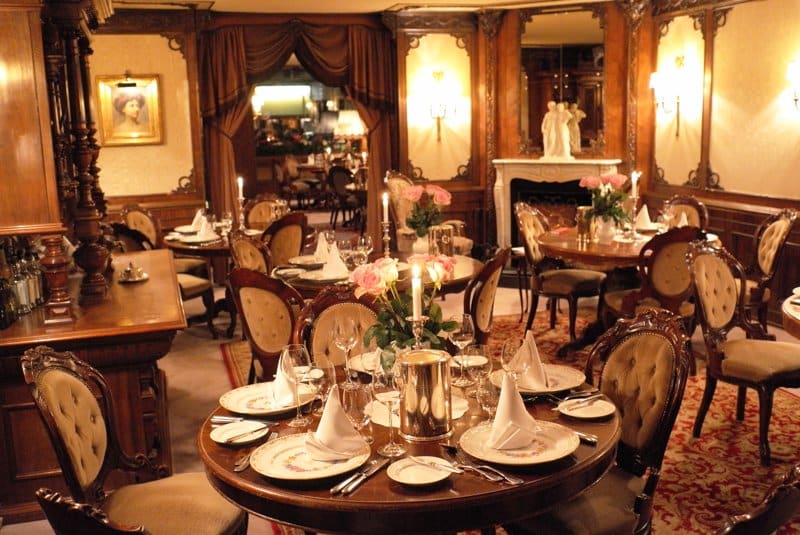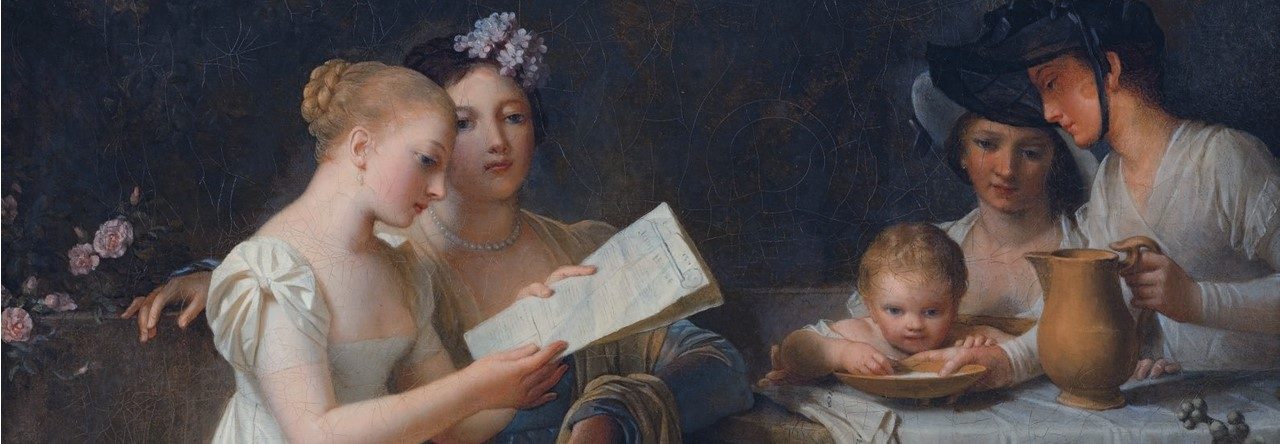
Aldridge looked around the unfamiliar room of a club patronised by the son and heir of the Duke of Sudbury. He soon spotted the distinctive white-blonde head of hair. Glenaire was dining alone at a table set apart from the others. Aldridge strolled over, catching up a chair on his way.
“Good evening, Glenaire. Would company go amiss?” It was a comedy they enacted for the audience. Glenaire had offered this as a meeting place when Aldridge asked for a private conversation.
Glenaire looked up from the pamphlet on which he focused to the neglect of his plate. “It would be my pleasure.” He hooked a finger at a passing footman. “A place setting for Lord Aldridge.”
As the footman hurried away, Glenaire went straight to the point. “Forgive if I’m assuming, Aldridge, but I gather this is about your family matter.”
Aldridge grimaced. “In a sense, Glenaire, though it touches on your particular interests. Let me be blunt. My ‘family matter’ as you call it is out of my hands and into those of men like your esteemed father. I shall need to trust they make the right decision, for what else can I do? Meanwhile, I am doing my best to contain the mischief my own progenitor can cause, as quietly as possible, for my mother’s sake and the sake of the duchy.”
Glenaire’s somber expression deepened. Unlike Aldridge, Glenaire had withdrawn from affairs of the Sudbury duchy and thrown himself into government, becoming highly influential in foreign affairs. His sharp disagreement with the duke his father made working together impossible and, unlike Haverford, the Duke of Sudbury remained very much in control. He understood, however, the frustration of watching his family heritage poorly managed while lacking power to intervene.
The footman arrived to serve a bowl of rich oyster soup. Aldridge thanked him with a smile, and took his first sip while waiting for the man to leave. “With your sister supporting this event my mother is sponsoring, I take it we shall be seeing you at the auction?”
“Of course,” Glenaire agreed. “Chadbourn and I have been working on similar issues for a few years. I will support the ladies’ efforts any way I can.”
“I was somewhat surprised to see your sister at Haverford House and joining in the committee’s activities. My impression has been she prefers to remain in Oxfordshire.”
Glenaire shook his head. “Georgiana is much too much a recluse. One worries. I urged her to come down for a few weeks while our parents are not in town.” A small movement at the corner of his lips hinted at amusement. “Your mother recruited her rather quickly. Now she has moved to Chadbourn House. She and the earl’s sister Lady Flora are partners in this cause.”
Aldridge grinned. “Chadbourn already has a special interest in the Society’s cause. The Chadbourn House servants are an interesting lot.” (Chadbourn recruited many of his servants from among disabled veterans and war widows.)
The footman finished pouring the wine to go with the soup course, and left. Aldridge leant forward and lowered his voice. “Glenaire, I’ll get straight to the point. It has come to my attention that a certain crime lord in the London slums has smuggling interests, and that the implications may touch on the security of the King’s realm. If… and I pose the question hypothetically… if a prominent Devon landowner gave safe haven to such criminals, and someone presented the government with information about the places and times of meeting, could the landowner’s name be kept out of it? The family would, of course, guarantee to deal with the matter in their own way. Indeed, steps are already being taken.”
Glenaire nodded. “Ah, but the government would have a strong interest in assisting the family in this matter. Confidentially, Aldridge we both know there are smugglers one winks at (your boyhood shows that) and ones that mean us harm. I assume these are the latter and can ensure the full force of the border enforcement—riding officers and military aid if it came to that. Unless, of course, you prefer I keep them out of it.”
Aldridge frowned. “It’s a tricky matter, Glenaire. It needs to be handled by someone with a bit of discretion. Yes, running with the smugglers in Devon is almost a rite of passage for Haverford sons. My brother and I both did it when we were schoolboys, and I still know some of the men I met then. They wouldn’t touch these London thugs with an extremely long barge pole.”
He looked down at his soup spoon, but it was clear his mind was far away. “I can’t stand by and let a man’s second childhood, and his resentment of a romantic rivalry from before I was born, put England at risk. But I don’t want — can I be blunt? — I don’t want the fool attained for treason, either.”
“Are we back to a “family” matter?” Glenaire asked.
Aldridge nodded, cautiously. “Hypothetical, again? Imagine a man whose excesses have rotted his brain, and who has always thought he was one step up from God. If he needed to pay a villain for an assassination attempt, and the payment demanded was free use of smuggler sanctuaries, would his conscience bother him, do you think?”
Glenaire leaned forward. “I think it would not bother him one whit.” He bit his lip, choosing words cautiously. “Let’s assume, hypothetically, a prominent individual has so taken leave of his senses as to put his duchy, locale or indeed England at risk. Dear God! He must be stopped.”
“Agreed.” Aldridge spread his lips in a travesty of a grin, as if Glenaire had said something amusing. “At any cost, Glenaire. Any cost. But I’m selfish enough to wish to limit the cost to something I can afford to pay.”
“Care for the impact of such a thing on a mother and her wards — not to mention the wellbeing of the duchy — is not selfish. No one gains by the scandal of a trial for treason. With the cooperation of close individuals — his heir for example — the man in question might be dealt with quietly. Some sort of confinement could be arranged. Do you anticipate difficulty from his peers? A duke for example, hypothetically?”
Another nod. This one more emphatic. “Indeed. A duke whose own heir might be very close to you.”
“Precisely. I have little influence with my father,” Glenaire acknowledged, “but this… no, I don’t suppose you want him to know about this.”
Aldridge inclined his head. “I am grateful for your understanding. He is not the only man on the panel for the Competence Hearing, so I do not despair of an appropriate outcome. If not — I have servants loyal to me. Something will be contrived.”
“A positive outcome there would make all this easier. You may be sure the Regent will agree with a finding in favour of the truth,” Glenaire assured his fellow heir, then his brows shot up. “One thing, Aldridge. You said, ‘an assassination attempt…’ but you don’t name the victim. Surely not the Regent! A high ranking official? We’ll need to organize protection.”
Aldridge responded with a wry quirk of the eyebrows. “The man in question has his own very efficient protection. You will have heard of the footpad attack more than a year back on the town carriage of a certain duke? Five of twelve scoundrels left dead in the streets? The next two attempts have been kept quiet, but have resulted in a similar body count.”
“Ah,” Glenaire said knowingly. “A man with a private army perhaps?”
A small smile. “No noble is permitted a private army, Glenaire. This personage has only the number of retainers permitted by law. That they are unusually skilled, men and women alike, is to their advantage in this case. I am not concerned for their safety and wellbeing. Though for all their prowess, if this Devil’s Acre fellow is allowed to continue, he might get lucky.”
Aldridge opened his jacket and pulled a slim package from an inside pocket. “A report from David Wakefield, the investigator. Use it as you need to, Glenaire.”
Glenaire accepted it and put it away in his own jacket. “Thank you for the warning. I’ll send the support the hypothetical heir needs, alert certain influential individuals. Ah yes, and speak to you again at the ladies’ auction. Our sisters will insist on it.”
Aldridge laughed. “I expect it to cost me a pretty penny, one way and another. My mother tells me it is my duty to purchase the baskets of any lady who may be left behind. I trust I can content myself with driving up the bids of others.”
Glenaire allowed himself a slightly broader smile. “I fear I lack your patience for the latter but I’ll try to do my duty by the first.”
“One must have patience to be a success with the ladies, Glenaire.” Aldridge smiled warmly at the footman who replaced his soup bowl with a plate of roasted beef and finely cooked vegetables. “Thank you. Will you see the doorman and fetch the bottle I left with him? Glenaire? May I treat you to a fine Italian red?”
***
The event the Duchess of Haverford is organising, and some of the other matters touched on in this discussion between Jude’s Marquis of Aldridge and Caroline’s Marquess of Glenaire, are featured in Fire & Frost, due for publication on 4 February. Click on the link to find out more about five wonderful stories, set in the winter of 1813-14, when the weather was so cold the Thames froze over, and all five stories converge at the Frost Fair.
And come back to check out the tour around the Belles’ blogs on release day your own personal guided tour of five Frost Fair booths, with a large helping of scandal and five micro stories written just for the blog tour. (The link will be added when the tour opens.)





 Becky is the envy of the courtesans of the demi-monde – the indulged Rose of Frampton, mistress of the wealthy and charismatic Marquis of Aldridge. But she dreams of a normal life; one in which her daughter can have a future that does not depend on beauty, sex, and the whims of a man.
Becky is the envy of the courtesans of the demi-monde – the indulged Rose of Frampton, mistress of the wealthy and charismatic Marquis of Aldridge. But she dreams of a normal life; one in which her daughter can have a future that does not depend on beauty, sex, and the whims of a man. Sebastian Beringer covered his notes with one arm, trying to do so in a way that would not draw fire from his angry employer. If need be, he would claim he was writing a love letter. The Merry Marquis, whose love affairs were legendary, would surely not snoop further.
Sebastian Beringer covered his notes with one arm, trying to do so in a way that would not draw fire from his angry employer. If need be, he would claim he was writing a love letter. The Merry Marquis, whose love affairs were legendary, would surely not snoop further.
 Prue’s job is to uncover secrets, but she hides a few of her own. When she is framed for murder and cast into Newgate, her one-time lover comes to her rescue. Will revealing what she knows help in their hunt for blackmailers, traitors, and murderers? Or threaten all she holds dear?
Prue’s job is to uncover secrets, but she hides a few of her own. When she is framed for murder and cast into Newgate, her one-time lover comes to her rescue. Will revealing what she knows help in their hunt for blackmailers, traitors, and murderers? Or threaten all she holds dear?